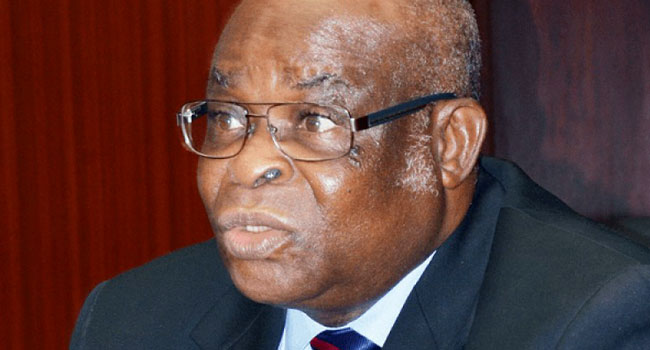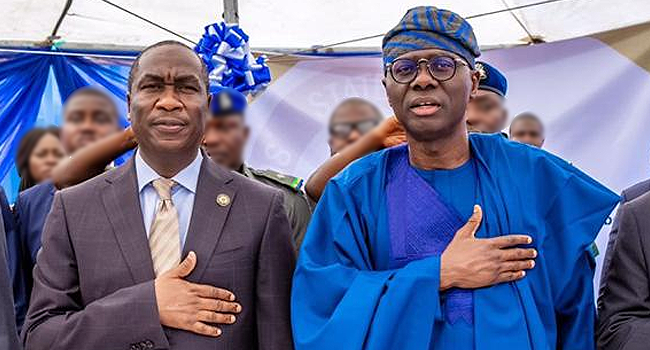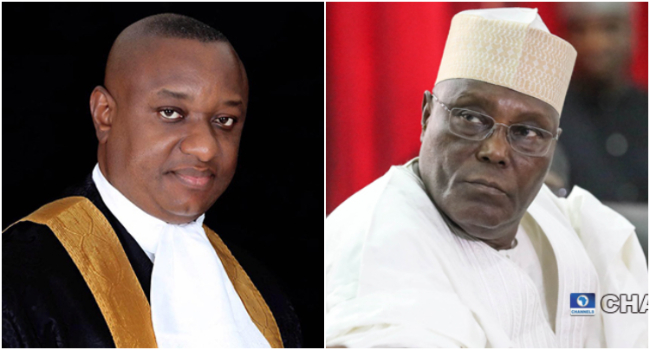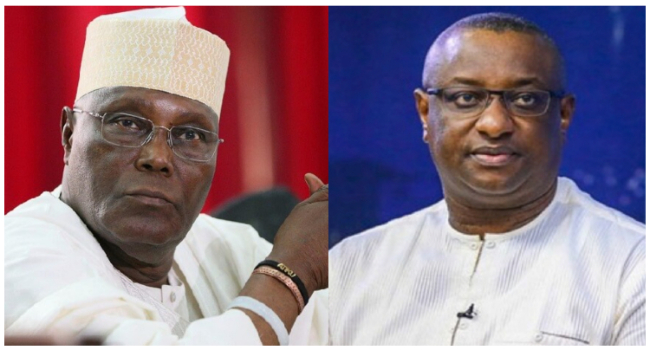
The Code of Conduct Tribunal has ordered a director of the Code of Conduct Bureau to appear as a witness for Justice Walter Onnoghen in his ongoing trial for alleged non-declaration of assets.
CCT Chairman, Justice Danladir Umar, ordered Mrs Theresa Nwafor – Director of the CCB in Benin – to appear before the tribunal on Wednesday by 10 am, following a request by Justice Onnoghen’s counsel.
The tribunal had on Friday dismissed Justice Onnoghen’s no-case submission, insisting he had a case to answer and ordered him to open his defence on Monday.
At the resumed sitting, Justice Onnoghen’s counsel, Adegboyega Awomolo, said the proceedings from Friday’s hearing had not been made available to the defence.
READ ALSO: Alleged False Assets Declaration: Onnoghen To Call CCB Director As Witness
He then made a request for Mrs Theresa Nwafor to be subpoenaed to appear as a witness for the CJN, a position the prosecution counsel did not object to.
In his ruling, the Chairman of the Tribunal granted the request and ordered her to be at the tribunal on Wednesday by 10 am.
Meanwhile, a second witness Lawal Busari had taken the witness stand on behalf of Justice Onnoghen.
The witness, a staff member of the Supreme Court, told the tribunal he is a driver to the CJN.
He further narrated to the tribunal how he was sent by the CJN to collect the asset declaration form on his behalf and that the CCB gave him a receipt to that effect.
When the counsel to the CJN sought to tender the said receipt, the prosecution objected to the move.
The tribunal, however, admitted the receipt.
Continuing with his testimony, the witness said he submitted the forms at the CCB after the CJN had filled it. The witness said he filled his own form and was issued a receipt as well.
Again, when the defence counsel attempted to tender the receipt of the witness, the move was objected to by the prosecutor who said it was not relevant to the case.
The defence counsel insisted that the action of the witness is relevant to the case of the CJN, but the chairman of the Tribunal agreed with the prosecutor and rejected the receipt.
Under cross-examination, the prosecutor asked the witness why he was looking at a small white paper during his testimony in chief.
The witness replied that he wasn’t looking at any paper.
He was now asked if he wrote on the paper and if the paper contained facts which he gave evidence on. The witness said what was written on the paper was about himself.
The defence counsel did not object to the admissibility of the piece of paper as evidence.



